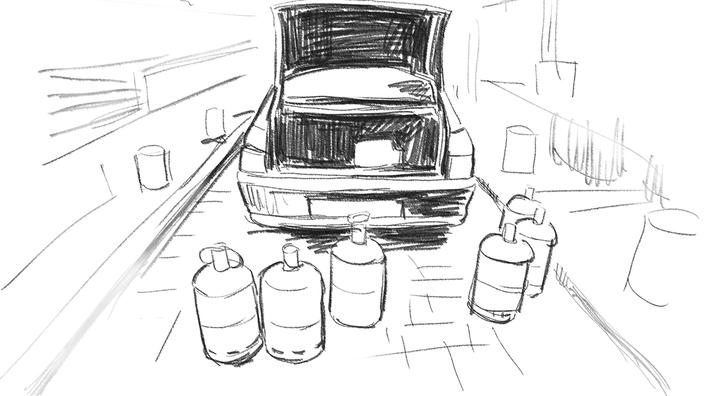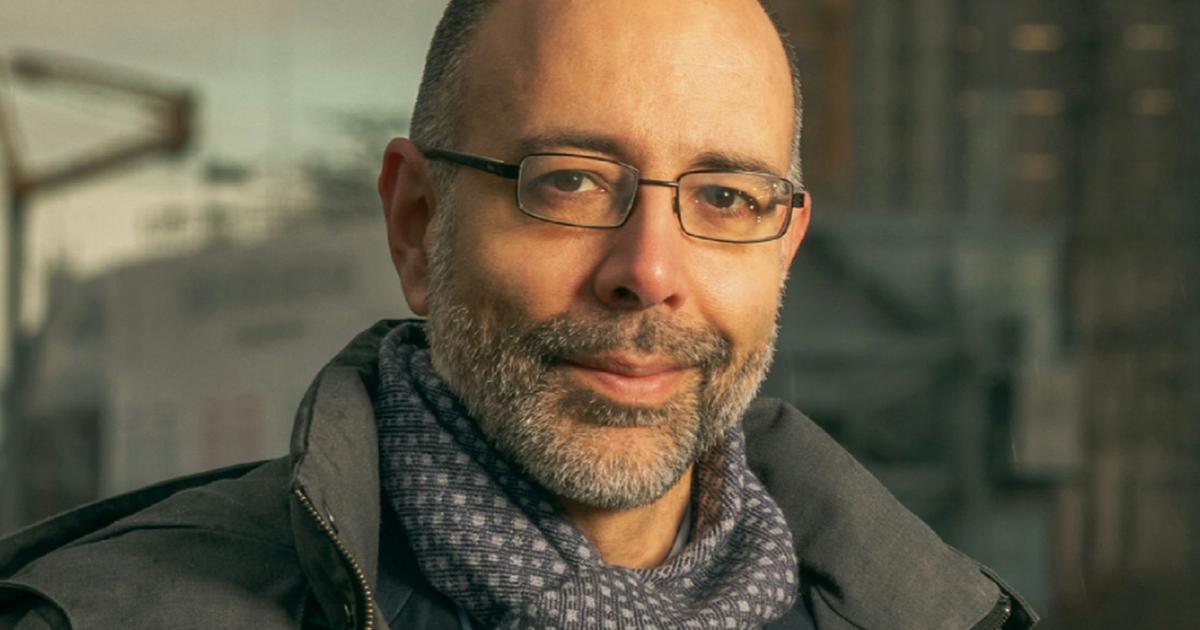Of the eight accused in Act 1, only two remain.
This Tuesday, May 25 opens before the Special Assize Court of Paris the appeal trial of Inès Madani and Mohamed Lamine Aberouz in the so-called “Notre-Dame gas cylinders” case.
A terrorist case which actually revolves around two components: an attempted attack with a car bomb and a knife attack by police officers in Essonne.
Read the file: The gas cylinders of Notre-Dame: the verdict of the trial of a failed attack
On September 4, 2016, police officers spotted a suspicious car in the 5th arrondissement of Paris, not far from the forecourt of Notre-Dame.
Inside, they had discovered six gas cylinders ... Four days later, the police had suffered a knife attack during an intervention in Boussy-Saint-Antoine (Essonne).
The link between these two cases is called Inès Madani.
The DNA of the young woman, only 19 years old at the time, is found in the vehicle bomb, which also belongs to her father.
On September 8, in Boussy-Saint-Antoine, the one who became radicalized at the end of 2014 was injured and arrested after threatening a police officer with a knife.
Two other women are arrested next to him.
Heavy sentences in first instance
Three years later, eight people are facing justice.
On October 14, 2019, at the end of sixteen days of hearing, several heavy sentences were pronounced.
Rachid Kassim, suspected of being the instigator of these attacks, is sentenced to life imprisonment in his absence.
Inès Madani receives thirty years in prison, Ornella Gilligmann - whose DNA was also found in the car - twenty-five years.
To read also: Failed attack of Notre-Dame: the special assize court of Paris pronounces very heavy sentences
Sarah Hervouët and Amel Sakaou, the two women arrested with Inès Madani in Essonne, are sentenced to twenty years in prison.
Three other people receive lighter sentences: five years in prison, one of which is suspended for Samia Chalel, three years for Mohamed Lamine Aberouz and three years in prison for Selima Aboudi.
Only Inès Madani and Mohamed Lamine Aberouz decide to appeal.
Rejected from May 25 to June 7, they incur the same penalties as in 2019: life imprisonment for the first, five years in prison for the second.
The shadow of Magnanville
The lawyer of Inès Madani, Me Laurent Pasquet Marinacce, who qualified the first instance decision as
"totally excessive", "made for the opinion"
and
"taking into account neither the facts, nor the extreme youth of Inès Madani
”, no longer represents her today.
It is Me Daphne Pugliesi who will be responsible for ensuring the defense of the young woman on the occasion of this second trial.
Mohamed Lamine Aberouz is always assisted by the same counsel, Me Vincent Brengarth.
The latter will plead again on appeal "
the absence of elements allowing to enter in the process of conviction concerning the non-denunciation of terrorist crime
" imputed to his client, he indicates to
Le Figaro
.
Read also: The links between radical Islamists exposed during the trial of the failed Notre Dame attack
The lawyer also fights for
"that there is no confusion"
and that the magistrates
"make the share of things"
between this case and that of the attack of Magnanville, in which Mohamed Lamine Aberouz is put. under review.
Five years after the assassination of a couple of police officers at their home, the investigation of this case is still ongoing.













/cloudfront-eu-central-1.images.arcpublishing.com/prisa/KMEYMJKESBAZBE4MRBAM4TGHIQ.jpg)

